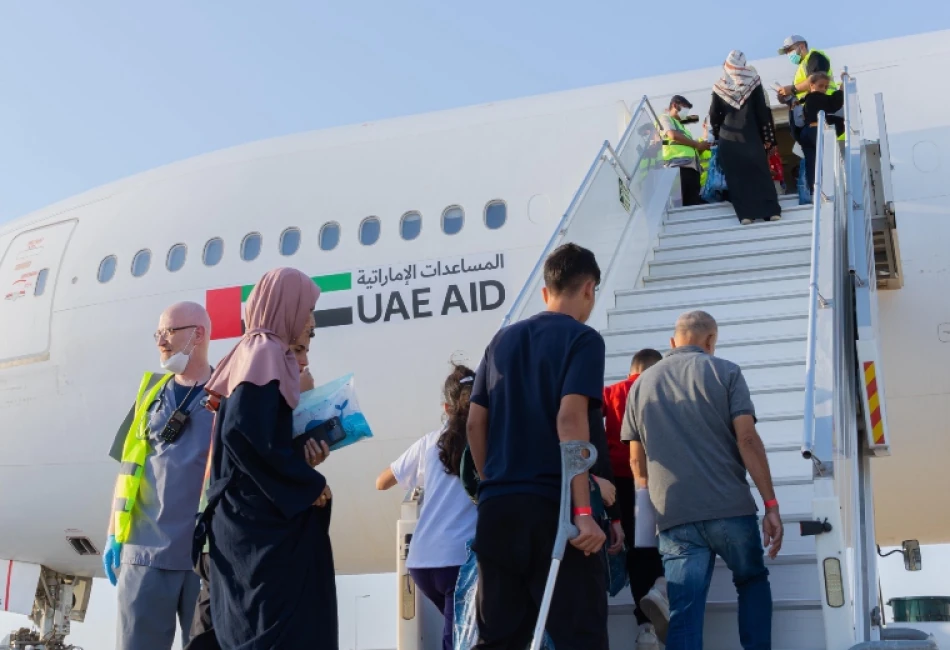
UAE Rushes to Evacuate 155 Injured and Ill Gazans for Urgent Medical Treatment
UAE Scales Up Gaza Medical Evacuations, Reaching Nearly 3,000 Patients Amid Regional Crisis
The United Arab Emirates has evacuated another 155 injured and sick Palestinians from Gaza, bringing its total medical evacuations to 2,785 patients and accompanying family members since the current crisis began. This latest operation, conducted in partnership with the World Health Organization through Israel's Ramon Airport and the Kerem Shalom crossing, underscores the UAE's expanding role as a regional humanitarian hub while other Gulf states maintain more cautious approaches to the Gaza crisis.
Ambitious Treatment Program Targets Vulnerable Populations
The evacuation forms part of a broader initiative directed by UAE President Sheikh Mohammed bin Zayed Al Nahyan to provide medical treatment for 1,000 wounded Palestinian children and 1,000 children suffering from cancer. This targeted focus on pediatric cases reflects the UAE's strategic approach to humanitarian diplomacy—choosing highly visible, emotionally resonant causes that generate international goodwill while avoiding direct political confrontation.
Critical cases among the evacuees have been transferred to hospitals in Abu Dhabi, while other patients and their families are being housed at the UAE Humanitarian City under specialized medical supervision. This dual-track system allows the Emirates to handle both emergency medical cases and longer-term care needs efficiently.
Strategic Humanitarian Diplomacy in Action
Sultan Mohammed Al Shamsi, Assistant Minister of Foreign Affairs for Development and International Organizations and Deputy Chairman of the UAE's International Aid Agency, emphasized the country's "historical support for the Palestinian people." This language signals the UAE's careful balancing act—maintaining humanitarian credentials while preserving its Abraham Accords relationship with Israel and broader regional stability goals.
The UAE's approach contrasts sharply with other regional powers. While Saudi Arabia has largely limited itself to diplomatic statements, and Qatar focuses on financial aid and mediation, the Emirates has chosen highly visible medical evacuations that require coordination with both Israeli authorities and international organizations.
Comprehensive Care Beyond Emergency Medicine
Beyond immediate medical treatment, the UAE is providing educational and cultural services to patients and families—a detail that reveals the anticipated long-term nature of this crisis. This comprehensive approach suggests UAE officials expect extended displacement periods, positioning the country as a semi-permanent refuge rather than a temporary medical stopover.
The Emirates has also deployed a floating hospital off Egypt's Al-Arish coast and operates a field hospital in southern Gaza, creating a multi-layered medical response system that extends UAE influence across the crisis zone.
Regional Implications and International Relations
This humanitarian initiative serves multiple strategic purposes for the UAE. It demonstrates the practical benefits of the Abraham Accords by enabling medical evacuations through Israeli territory—something that would have been impossible before normalization. Simultaneously, it allows the Emirates to maintain credibility with Arab and Muslim populations who view support for Palestinians as a litmus test for regional leadership.
The collaboration with UN agencies and use of Israeli infrastructure also positions the UAE as an indispensable mediator in future regional arrangements. By making itself essential to humanitarian operations, the Emirates creates leverage that could prove valuable in post-conflict negotiations or broader Middle Eastern diplomatic initiatives.
For international observers, the UAE's systematic approach to this crisis—complete with dedicated facilities, specialized staff, and long-term care provisions—suggests a level of preparedness that indicates either exceptional humanitarian planning or advance knowledge of the crisis's likely duration and scale.
Most Viewed News

 Sara Khaled
Sara Khaled






